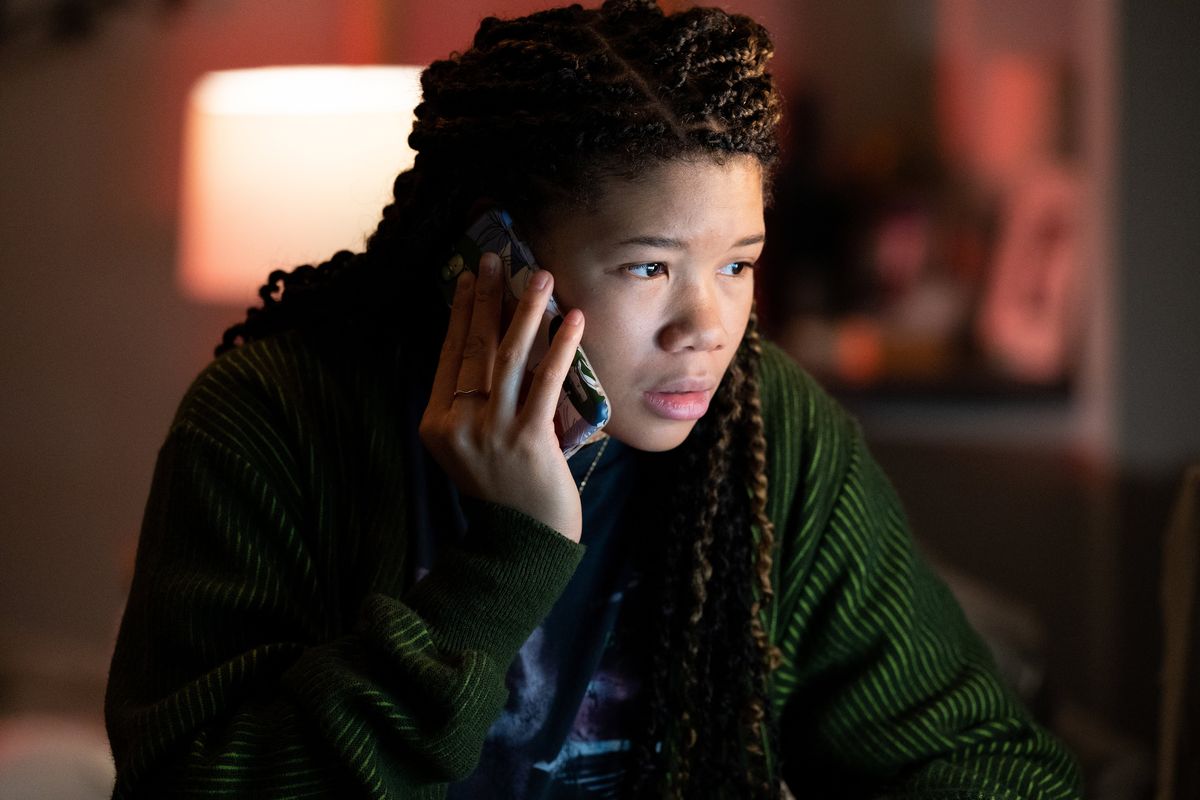Movie Review: ‘Missing’: An adolescent Sherlock Holmes, by way of WhatsApp

It’s 10 p.m. Do you know where your parents are?
“Missing” flips the script on parental anxiety in a moderately successful thriller that follows a teenage girl desperate to find her mother. Unfolding entirely on laptop and smartphone screens, it doesn’t make for pleasant viewing. But the cluttered visuals drive home an ambivalence about the digital age – one that isn’t entirely resolved.
Storm Reid stars as June, who as the movie begins is excited to have the house to herself, just as soon as her single mother, Grace (Nia Long), flies off to Colombia on vacation with her new boyfriend, Kevin (Ken Leung). Naturally, June hosts a bacchanalian revel – though one may ask why she chooses the night before her mother is scheduled to come home – waking up the next day with a giant hangover. That adolescent regret is soon exacerbated by a new worry: Mom didn’t make her return flight.
If the plot seems familiar, the premise inverts that of the 2018 film “Searching,” which was edited by this film’s directors, Nicholas D. Johnson and Will Merrick, and in which John Cho played a single father looking for his missing teenage daughter. Structurally, the two films are practically identical, with the crisis launched at point A, a twist deployed at point B and computers nearly shut down at point C – just before an amazing revelation sends us inexorably to point D. Both films are about the ways technology isolates us – and how the same technology, with no small thanks to the surveillance state, can help bring us back together.
But despite being pretty much the same movie with a different cast, “Missing” manages to be fairly engaging.
It helps that the final act is not quite as ridiculous as the red herring that weighed down “Searching.” And while you wouldn’t think watching a series of pop-up windows inside other pop-up windows would be a good way to flesh out relationships and character, a few performances stand out. (Cho, for his part, was quite memorable in the previous film.)
Reid is believable as a young woman who shifts from youthful indifference to concern and caretaking. And Joaquim de Almeida pulls off an even neater trick as a Colombian man who answers June’s request for help searching the streets where Grace disappeared: We see the actor only through the tiny window of a WhatsApp screen, but he develops a rapport with June that evolves from mere errand runner to something like a genuine (albeit long-distance) friendship.
Have the past three years of Zoom meetings acclimated us to this kind of storytelling? “Missing” is still a one-trick pony, but its disembodied narrative is probably here to stay. Overlapping screens may be the 21st-century equivalent of director Robert Altman’s overlapping dialogue, which itself was driven in part by advances in multitrack sound recording. While “Missing” is just a cheap thriller, one can’t help but wonder whether, in the hands of more inventive filmmakers, the screen time that has come to define personal interaction might find a richer dramatic purpose.
A few years ago, this style of storytelling might have seemed like dystopian science fiction. It’s no spoiler, but at the end of “Missing,” its protagonists turn their cellphones off. What’s most chilling to contemplate is the fact that, for a lot of people, screen time never ends.